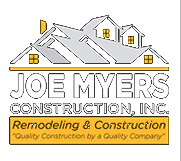
Home renovation projects can be exciting opportunities to transform your living space into a more comfortable, functional, and aesthetically pleasing home. However, it is not uncommon for homeowners to face challenges in managing finances during such extensive undertakings. Whether you are planning a complete home remodeling or a focused kitchen remodeling project, understanding how to manage your budget is essential. Many homeowners ask, “how much does home renovation cost?” and the answer can vary significantly based on scope, materials, labor, and location. In this blog, we will explore a variety of strategies that will help you stay on budget during your home renovation while ensuring that you achieve the desired results without compromising quality.
Understanding Your Budget and Planning Ahead
Before you begin any renovation project, it is crucial to have a clear picture of your financial landscape. This means establishing a comprehensive budget that covers every potential expense from materials to labor costs and even permits or design consultations. For those considering home remodeling, an essential first step is to compile a list of all planned improvements and research the average costs associated with each task. This proactive approach not only helps you understand how much does home renovation cost on a general level but also allows you to identify which parts of the project can be scaled back or delayed if necessary.
One of the best ways to start is by prioritizing your needs versus your wants. It is common for homeowners to dream of extensive changes, such as luxurious kitchen remodeling or custom-designed spaces, but these ideas must be balanced against practical limitations. Begin by distinguishing between necessary updates that enhance functionality and elements that are merely cosmetic. By doing so, you can allocate funds to the most important aspects of your project and avoid overspending on nonessential details. Detailed research, gathering multiple quotes from contractors, and planning for contingencies are all part of the planning phase that sets the stage for a financially sound project.
Setting Realistic Expectations and a Clear Timeline
Establishing realistic expectations is another critical factor in keeping your renovation on budget. Sometimes the initial excitement of a home renovation project leads to ambitious plans that do not align with your available resources. A common pitfall in home remodeling projects is underestimating the time and effort required. Unexpected delays, such as issues with permits or hidden structural problems, can quickly drive up costs. Creating a clear timeline that includes built-in buffers for unforeseen delays can help manage both your expectations and your wallet.
When planning your timeline, it is wise to break down the project into phases and set achievable milestones for each phase. For example, if you are considering a comprehensive kitchen remodeling project, set specific goals for design finalization, procurement of materials, demolition, installation, and finishing touches. This not only allows you to monitor your progress but also gives you the flexibility to make adjustments if costs begin to escalate. Detailed scheduling coupled with regular reviews of your budget will help you stay focused and avoid unnecessary spending. Keeping a close eye on your financial progress is as important as the physical progress of the renovation itself.
Smart Spending: Prioritize, Compare, and Invest Wisely
Once you have a clear plan and a realistic timeline, the next step is to focus on smart spending. One of the most effective ways to stay within budget is to prioritize expenditures that offer the most value in terms of durability and functionality. For instance, if you are undertaking kitchen remodeling, focus on investing in quality appliances and fixtures that will last for years rather than opting for the cheapest options available. Often, the lowest cost is not synonymous with the best value, and cutting corners on important elements can lead to higher maintenance and replacement costs down the road.
Additionally, it is important to shop around for materials and labor. Obtaining multiple quotes from different contractors and suppliers can reveal significant price differences. When comparing quotes, be sure to assess what is included in each offer—some may charge extra for services that are considered standard by others. Home renovation projects benefit greatly from detailed research and negotiation. Visiting local showrooms, reading online reviews, and even asking for referrals from friends who have undergone similar projects can provide insights that help in making informed decisions. In many cases, understanding the kitchen renovation cost involves not only the upfront purchase price of materials but also the long-term investment in the quality of workmanship and durability of the installations.
Managing Unexpected Costs and Staying Flexible
No matter how well you plan, unexpected costs are an inevitable part of any home remodeling project. Hidden issues such as outdated electrical wiring, water damage, or structural deficiencies can surface during renovation work and require immediate attention. To mitigate these surprises, it is essential to set aside a contingency fund, typically ranging from 10% to 20% of your overall budget. This reserve will allow you to address unforeseen challenges without derailing the entire project. By planning for contingencies, you are less likely to find yourself asking, “how much does home renovation cost” in shock as bills mount unexpectedly.
Flexibility is equally important when managing a renovation budget. As the project unfolds, circumstances may change, and some aspects of your plan might need to be modified or postponed. Maintaining an adaptable mindset ensures that you can respond to these challenges without becoming overly stressed. For example, if a particular design element or material option suddenly exceeds your budget, consider exploring alternative solutions that provide a similar aesthetic or functionality at a lower cost. Keeping the focus on the overall goals of your home renovation, rather than fixating on every minor detail, will help you navigate unexpected expenses with a clear head. An adaptable approach combined with a solid financial cushion can make the difference between a successful project and one that spirals out of control.
Balancing Ambition with Financial Prudence
As you progress through your home remodeling journey, the balance between ambition and financial prudence becomes increasingly critical. It is natural to have high hopes for a beautiful, updated home, but the reality of costs means that every decision must be weighed carefully. Whether you are considering a large-scale home renovation or a focused kitchen remodeling project, it is important to remember that staying on budget does not mean sacrificing quality or creativity. Instead, it calls for a strategic approach where every expense is justified, and every decision aligns with your long-term vision for the space.
A successful home renovation is ultimately a blend of careful planning, ongoing management, and a willingness to adapt. From the early stages of budgeting and research to the final phases of execution, each step presents an opportunity to refine your plan and make smarter financial choices. By setting realistic expectations, prioritizing essential expenditures, and keeping a flexible approach toward unexpected challenges, you can navigate the complexities of home remodeling with confidence. The journey may involve tough choices and occasional compromises, but the result—a beautifully transformed home that reflects both your vision and your financial boundaries—will be well worth the effort.
Throughout the process, continuous monitoring of both your progress and your expenses is paramount. Regular reviews of your spending and frequent communication with your contractors can prevent small issues from ballooning into major budget overruns. For those wondering how much does home renovation cost, remember that careful planning and diligent oversight are key strategies in achieving a balance between aesthetic aspirations and financial constraints. Keeping detailed records, staying informed about market prices, and being proactive in addressing potential pitfalls can all contribute to a more controlled and satisfying renovation experience.
Conclusion
A successful home renovation relies on a well-thought-out plan, realistic expectations, smart spending, and the flexibility to handle unexpected costs. Whether you are embarking on an ambitious home remodeling project or concentrating your efforts on a kitchen remodeling endeavor, the principles outlined in this blog will help you keep your budget in check. The insights shared here are designed to empower you with the knowledge and strategies needed to make informed decisions, ensuring that your home renovation project is not only transformative in appearance but also manageable in cost. Balancing creativity with financial discipline may be challenging, but with the right approach, you can achieve a stunning outcome that enhances your living space without compromising your financial stability.
Contact Us Today!
If you’re looking for custom affordable home renovation ideas in Everett, WA, Joe Myers Construction Inc. is here to help. Simply contact us today to discuss your project and discover how we can transform your home within your budget. We look forward to working with you and turning your renovation dreams into reality.
